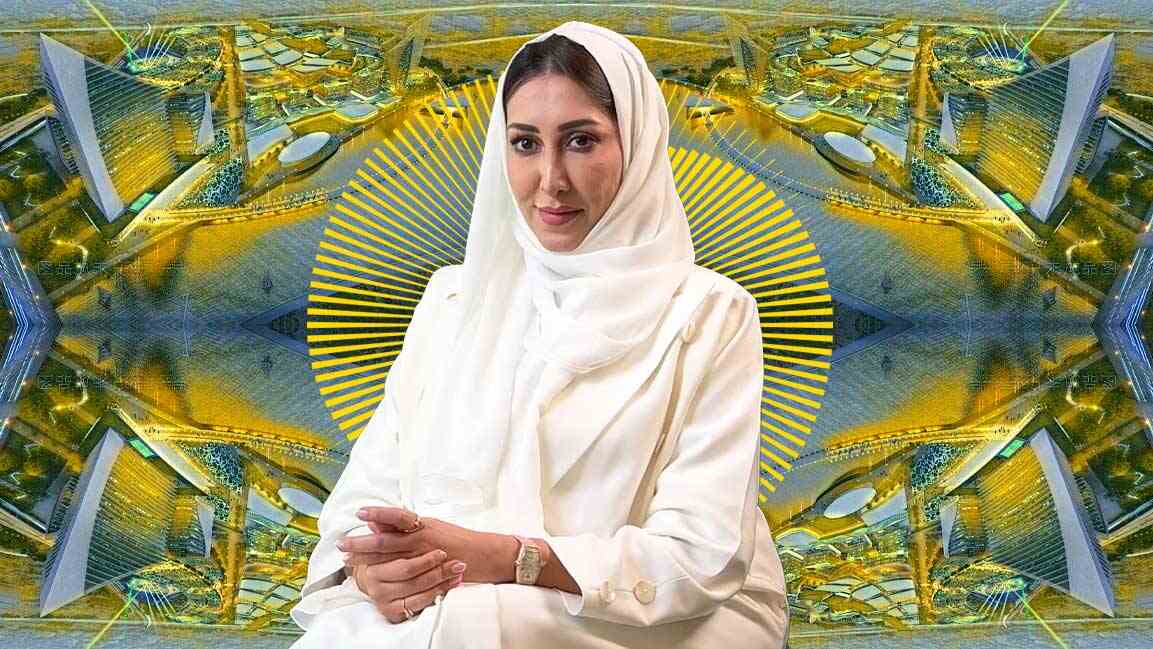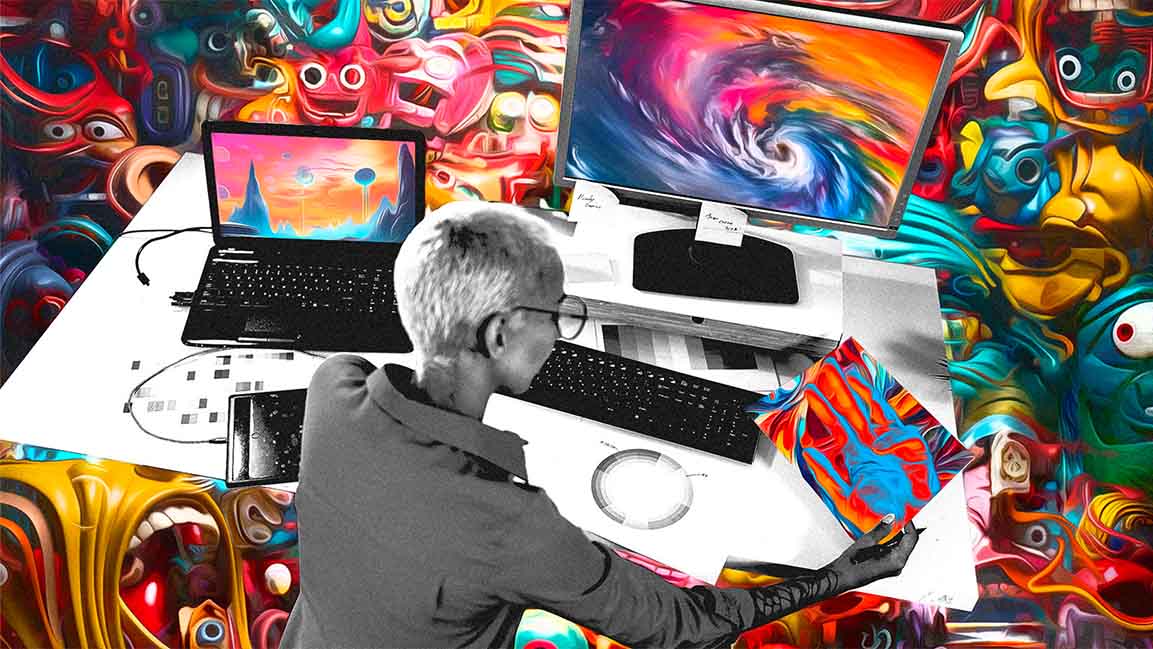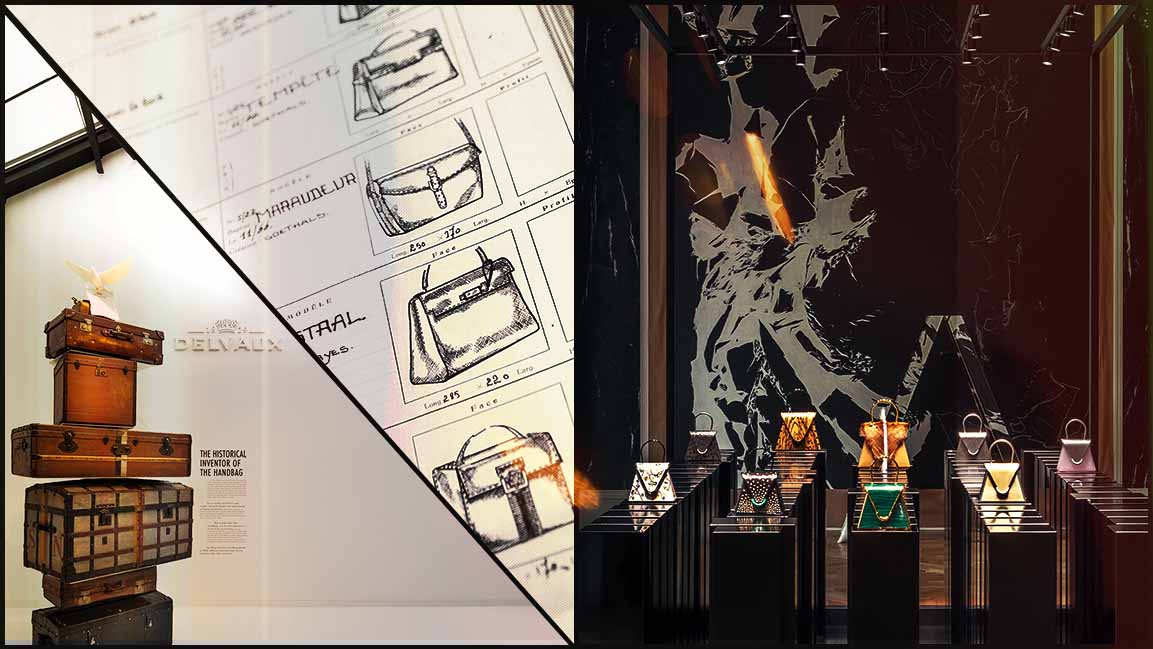- | 9:00 am
Humanized design can save the world, says Khadija Al Bastaki
Khadija Al Bastaki of Dubai Design District talks about how the creative economy is questioning, rethinking and reimagining the world.

“To provide a platform where creatives define the parameters of the future” is how Khadija Bastaki describes the creative hub of the UAE—Dubai Design District (d3), and a member of TECOM Group PJSC. In a region where creative inclusivity is a work in progress, d3 brings different worldviews and backgrounds to create art and democratize creative expressions and entrepreneurship.
“With acceleration in digitization over the past two years, the creative economy is more accessible than ever. The explosion of online events opened the door to new opportunities within the creative industry and has paved the way for accessibility and inclusivity,” says Khadija, the Vice President of d3.
Starting the freewheeling conversation on a lighter note, sitting at her office, we asked her if she has a favorite artist or designer; Khadija said, with a chuckle, “I have the privilege of working with artists and designers from all backgrounds and stages of their careers. I love working with diverse talents – regional, global, or newly established names. It’s always an honor.”
“It’s hard to pick just one,” she says, adding the most rewarding part of her job is “witnessing emerging and established designers engage and interact with each other.”
WATCH THE VIDEO HERE
NONE GETS LEFT BEHIND
Reflecting on the last two years, she says that COVID-19 was transformative—paving the way for the creative industry to look at inclusivity with a keen sense of purpose.
But there is more to be done—from identifying the key stakeholders and beneficiaries to the creative economy to developing new strategies to attract talent so that no one is left behind.
The key to inclusivity is collaboration, says Khadija. Government efforts such as the Dubai Creative Economy Strategy and the introduction of visa categorization, such as the Golden visa and the remote work visa, have reaffirmed inclusivity.
“We believe in the ability of talent to transform our economy and encourage people worldwide to come to Dubai, to rethink the obvious, to make, co-create and inspire.”
LEVERAGING CREATIVITY FOR ALL
Given the world’s vast array of challenges—pandemic, climate change, food insecurity, and energy crisis–the need for design thinking is more crucial than ever.
Taking full stock of this, Khadija says, “Design is deeply integrated into our lives. Perhaps more than what we realize. Design is everywhere, from how we dress, build the environment, tackle climate change, and invest in sustainability. Design skills will drive the creative economy”.
In 2021, Dubai attracted over 230 creative economy projects surpassing the likes of New York, Singapore and Berlin.
“At d3, we are proud of the ecosystem, which is home to many design offerings and international brands—from Zaha Hadid, Foster + Partners, Shiseido, and Dior to Chalhoub Group and Michael Cinco.”
d3 is a space, Khadija says, that is focused on providing a “fertile platform” for the creative economy and an ecosystem that allows creative minds to experiment, flourish, and collaborate in this true neighborhood of design and creativity.
BUILDING AN INCLUSIVE ECOSYSTEM
With flagship events that attract the world’s best ideas, thoughts and projects, Khadija says, the goal has always been to think glocal.
The ecosystem encourages all, including the entity, to rethink what it means to be home to a diverse community of businesses. “There is no one-size-fits-all solution. This is perhaps our biggest task with the businesses we work with. It is exciting to explore how we can drive growth and provide tailored solutions to our community.”
Beyond business partners, d3 is focused on its community of students, entrepreneurs, designers, and multinational brands.
BALANCING THE BLURRING BOUNDARIES
With an influx of international talent to Dubai’s creative economy, lines between traditional and creative industries are increasingly blurring. And what it means to be creative is constantly being challenged.
“We will carry on to provide a lively calendar of in-person and online events that focus on community, expand their reach, and take businesses to the next level.”
It’s all about reinventing the wheel, even if it means starting from scratch. While attracting global talent to the city is crucial, Khadija says providing a global platform to homegrown talent is important.
The hub caters to the needs of the burgeoning creative community. While business incubator in5 helps entrepreneurs scale businesses and the Dubai Institute of Design and Innovation is developing the next generation of innovators, strategic partnerships for flagship events like Dubai Design Week, Arab Fashion Week, and Sole DXB are helping local talent to go global and bring local talent in.
DUBAI DESIGN WEEK AND BEYOND
In many ways, d3 brings to life a global and homegrown synthesis. “Our region is home to designers whose technical skills and eye for originality are unmatched.”
Its commitment to bringing the region’s creative best to the fore is evident in its magnum opus, Dubai Design Week. This year’s eighth edition will take place from November 9 to 12, bringing together global leaders and emerging design, interior design, and architecture talent who are looking to discover, buy, or commission design projects. However, throughout the year, the hub also rolls out local initiatives such as Rethink Summer to spark creative dialogue.
A feather in its cap came in March when it was revealed that the creative sector in Dubai contributed 4% to the GDP, higher than the global average.
“We are committed to supporting and helping creatives flourish in this city and the country and playing our part in the Dubai Creative Economy Strategy.”
When asked about the true value of collision between the forces of art, design and fashion, she says, “Beyond what we see, design, when humanized, has the power to save the world and to impact every element of our lives.”








































